| Author | Ashley Blom (Editor), David Warwick (Editor), Michael Whitehouse |
|---|
Apley And Solomons System Of Orthopaedics And Trauma
KSh 13,160.00
Related products
-
An Introduction to Forensic Genetics, 2nd Edition
KSh 16,198.00This is a completely revised edition of a comprehensive and popular introduction to the fast moving area of Forensic Genetics. The text begins with key concepts needed to fully appreciate the subject and moves on to examine the latest developments in the field. Now illustrated in full colour throughout, this accessible textbook includes numerous references to relevant casework. With information on the full process of DNA evidence from collection at the scene of a crime to presentation in a legal context this book provides a complete overview of the field.
Key Features:
- Greater in-depth coverage of kinship problems now covered in two separate chapters: one dealing with relationships between living individuals and the other covering identification of human remains.
- New chapter on non-human forensic genetics, including identification of bacteria and viruses, animals and plants.
-
Pocket Tutor Orthopaedics
KSh 5,500.00Titles in the Pocket Tutor series give practical guidance on subjects that medical students and foundation doctors need help with “on the go”, at a highly affordable price that puts them within reach of those rotating through modular courses or working on attachment.
- Common investigations (ECG, imaging, etc)
- Clinical skills (patient examination, etc.)
- Clinical specialties that students perceive as too small to merit a textbook (psychiatry, renal medicine)
Key points
- Practical, accessible introduction to a subject that students find daunting, but which juniors will encounter as part of orthopaedic and emergency rotations
- Logical, sequential content: relevant basic science; then chapters devoted to the clinical essentials of orthopaedics and the disorders and injuries seen most commonly in practice
- Descriptions of common disorders are enhanced by Clinical Scenarios (Patient presents with…), which help students and trainees to recognise and manage common presenting problems
-
Netter’s Clinical Skills, 1st Edition
KSh 3,080.00Make the most of every patient encounter – from the clinical interview and history to the physical exam, both in-office and bedside. This discreet quick reference by Ilene L. Rosenberg, MD, FCCP, Todd Cassese, MD, FACP, and Dennis Barbon, RN, helps you achieve consistent and comprehensive results when collecting data and determining your next steps. Carry this thin, fully illustrated checklist in your white coat pocket for the fastest, most efficient way to access essential information you need to know and remember every day.
-
Medical Microbiology, International Edition, 19th Edition
KSh 7,462.00Medical microbiology concerns the nature, distribution and activities of microbes and their impact on health and wellbeing. In spite of the introduction of many antimicrobial agents and immunisations, we continue to face major challenges in combatting infection, not least the gathering crisis in antimicrobial resistance.
Now in a fully revised and updated 19th edition, Medical Microbiology provides comprehensive coverage of infection from the microbial perspective, combining a clear introduction to key principles with a focus explicitly geared to modern clinical practice. It provides ideal coverage for medical and biomedical students – with ‘Key Points’ boxes throughout to highlight the essentials – and sufficient detail to also inform specialists in training.
Building on the success of previous editions, updates in Medical Microbiology 19e include:
-
- New and expanded coverage of hot topics and emerging areas important to clinical practice, including:
-
-
- Genomics
-
-
-
- The Human Microbiome
-
-
-
- Direct acting antiviral agents for the treatment of HCV infection
-
-
-
- Molecular methods in diagnostic microbiology
-
-
-
- Antibiotic Stewardship
-
-
- BONUS electronic materials to enhance your learning, including:
-
-
- Clinical cases – to introduce how patients with infections present and help relate key principles to practice
-
-
- MCQs for each chapter – to check understanding and aid exam preparation
-
-
Goodman and Gilman’s The Pharmacological Basis of Therapeutics, 13th Edition
KSh 19,028.00Goodman & Gilman’s: The Pharmacological Basis of Therapeutics, Thirteenth Edition represents the pinnacle of authority and accuracy in describing the actions and uses of therapeutic agents in relation to physiology and pathophysiology. Goodman & Gilman’s careful balance of basic science and clinical application has guided thousands of practitioners and students to a clear understanding of the drugs essential to preventing, diagnosing, and treating disease.
The Thirteenth Edition includes more than 500 color illustrations, with many new figures emphasizing mechanisms of drug action. More than 30 new contributors have added to this edition, while the focus on basic principles is undiminished.
This edition is enhanced by timely new content:
- NEW chapters including Treatment of Pulmonary Arterial Hypertension, Immunity and Inflammation, Immunoglobulins and Vaccines, and Treatment of Viral Hepatitis
- Expanded coverage of cardiovascular disease, with separate chapters on myocardial ischemia, hypertension, and heart failure
- Increased emphasis on cellular signaling pathways involved in drug action
- Summary tables at the end of each chapter that organize drugs discussed in that chapter into relevant categories and detail therapeutic usage, clinical pharmacology, and tips
- Chapter Content Outlines at the beginning of each chapter
- Abbreviation boxes in every chapter to easily identify the abbreviations appearing in that chapter
-
Hutchison’s Clinical Methods International Edition, 25th Edition
KSh 6,370.00Hutchison’s Clinical Methods, 25th International Edition, offers comprehensive guidance on patient assessment, clinical examination, and diagnostic skills, essential for medical students and practitioners worldwide.
Sir Robert Hutchison first published his textbook on Clinical Methods in 1897 and this latest edition maintains its reputation as the go-to guide to learn the core skills every clinician needs in their everyday practice.
Medical students and doctors in training will find essential guidance to taking a full history, examining a patient and interpreting the findings. They will learn the art of understanding, contextualising, communicating and explaining, with the doctor-patient relationship firmly at the centre of their practice. These skills remain essential for every doctor, in addition to modern investigative methods.
The book covers basic principles, different patient groups and all the main body systems. Each chapter includes relevant clinical methods and offers guidance for appropriate investigations. New methods and investigations are incorporated into established patterns of clinical practice to offer a fully integrated approach.
This award-winning textbook remains as relevant today as ever and will be treasured by doctors at all levels of training and practice as an outstanding source of learning and reference.
Key Features-
- All chapters carefully reviewed and updated to reflect modern practice
-
- Written by experts in their field and reviewed by an International Advisory Board – content is relevant to a wide international readership including in the Indian sub-continent, the Middle East and Africa
-
- Covers all the main body systems, including the core areas of respiratory, cardiological, gastrointestinal, neurological and locomotor systems
-
- Text organised by system and problem to aid navigation
-
- Chapters can be read individually, to avoid duplication and need for cross-referencing
-
- Tabulated information and diagrams for clarity and conciseness
-
- Tailored to student needs but suitable for doctors at all levels of training and practice
-
- Winner of multiple awards, including the BMA book awards
-
- New appendix describing the clinical features of COVID-19
Author InformationEdited by Michael Glynn, MA, MD, FRCP, FHEA, Consultant Physician, Gastroenterologist and Hepatologist, Barts Health NHS Trust; Honorary Senior Lecturer, Barts and the London School of Medicine and Dentistry; Former National Clinical Director for GI and Liver Diseases, NHS England and William M Drake, DM FRCP, Consultant Physician/Reader in Medicine, Department of Endocrinology, St Bartholomew’s Hospital, London, UK -
-
Integrative Human Biochemistry: A Textbook for Medical Biochemistry
KSh 13,750.00This book covers in detail the mechanisms for how energy is managed in the human body. The basic principles that elucidate the reactivity and physical interactions of matter are addressed and quantified with simple approaches. Three-dimensional representations of molecules are presented throughout the book so molecules can be viewed as unique entities in their shape and function.
The book is focused on the molecular mechanisms of cellular processes in the context of human physiological situations such as fasting, feeding and physical exercise, in which metabolic regulation is highlighted. Furthermore the book uses key historical experiments that opened up new concepts in Biochemistry to further illustrate how the human body functions at molecular level, helping students to appreciate how scientific knowledge emerges.
This book also:
- Elucidates the foundations of the molecular events of life
Uses key historical experiments that opened up new concepts in Biochemistry to further illustrate how the human body functions at molecular level, helping students to appreciate how scientific knowledge emerges
- Provides realistic representations of molecules throughout the book
Advance Praise for Integrative Human Biochemistry
“This textbook provides a modern and integrative perspective of human biochemistry and will be a faithful companion to health science students following curricula in which this discipline is addressed. This textbook will be a most useful tool for the teaching community.”
- Elucidates the foundations of the molecular events of life
-
Oxford Handbook of Clinical Specialties (Oxford Medical Handbooks
KSh 6,580.00Now in its 25th year, the Oxford Handbook of Clinical Specialties has been revised and updated by a trusted author team to bring you practical, up-to-date clinical advice and a unique outlook on the practice of medicine. Twelve books in one, this is the ultimate guide to the core clinical
specialties for students, junior doctors, and specialists.This edition features a new and improved referencing system guided by a team of junior doctors, ensuring that the text is packed with valuable references to the most salient data and guidelines across the specialties. Each chapter has been updated on the advice of a team of specialists, to bring you
everything you need for any eventuality on the ward or in the field. This essential handbook guides the reader through the management of an unprecedented spectrum of conditions and eventualties, from sexual health to major incident management. Compact and filled with high quality artwork, directions
to further reading, and wise advice, this book is an ideal resource for revision and reference on the go.With its companion volume, the Oxford Handbook of Clinical Medicine, the Oxford Handbook of Clinical Specialties offers a unique perspective on the practice of medicine. Filled with wit, wisdom, and humanity, this book draws on literature, history, and personal experience to teach a philosophy of
medicine that always puts the patient at the centre of compassionate care. It is a trustworthy companion for anyone with the spirit of self-improvement and a passion for their practice.



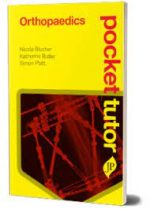
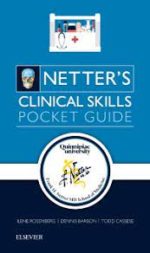
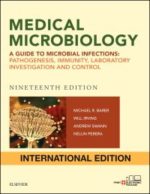
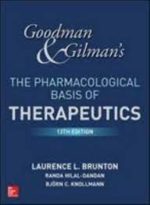
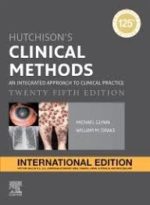
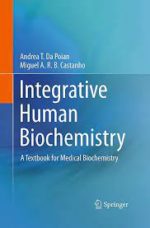

Be the first to review “Apley And Solomons System Of Orthopaedics And Trauma”